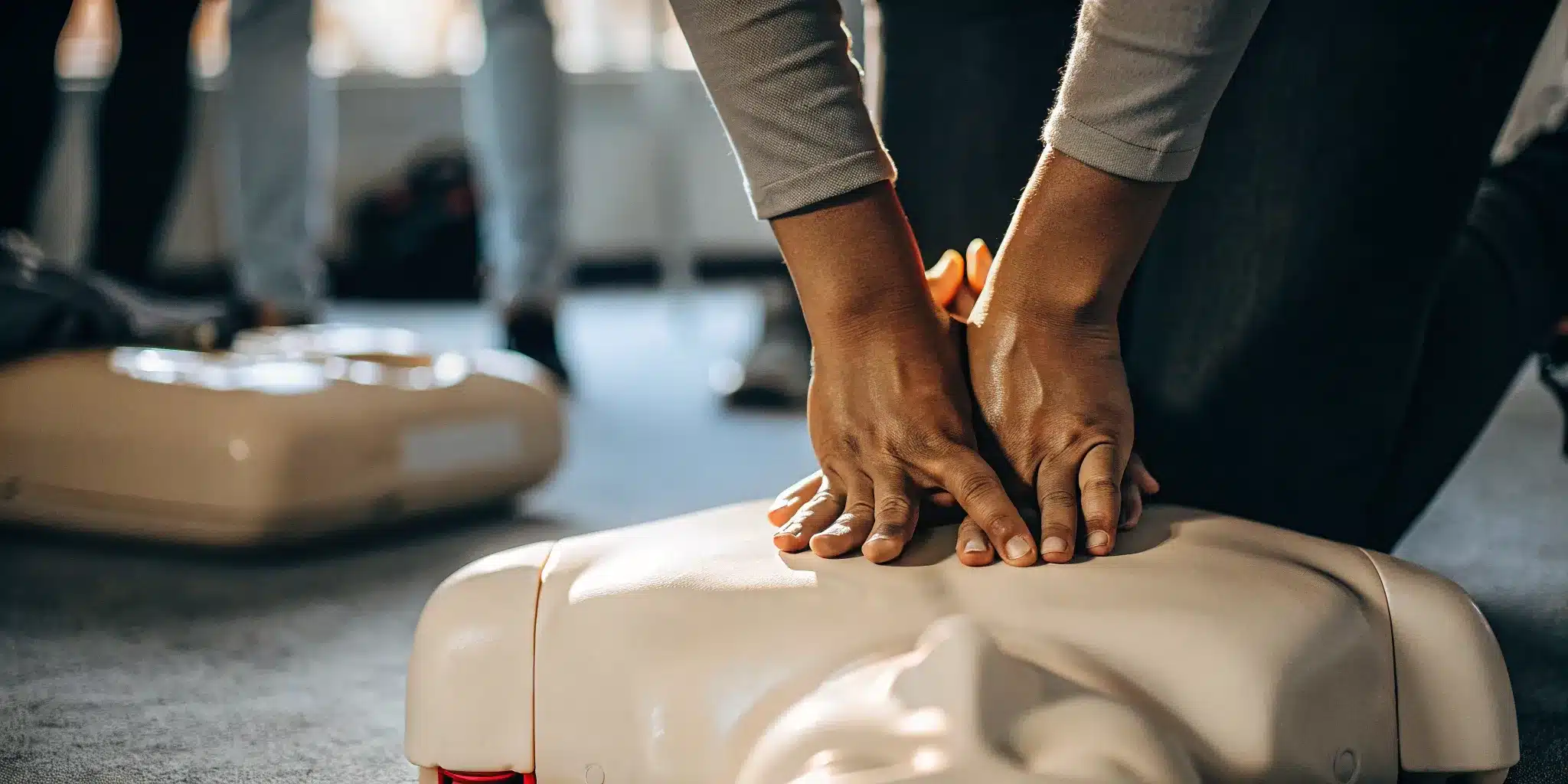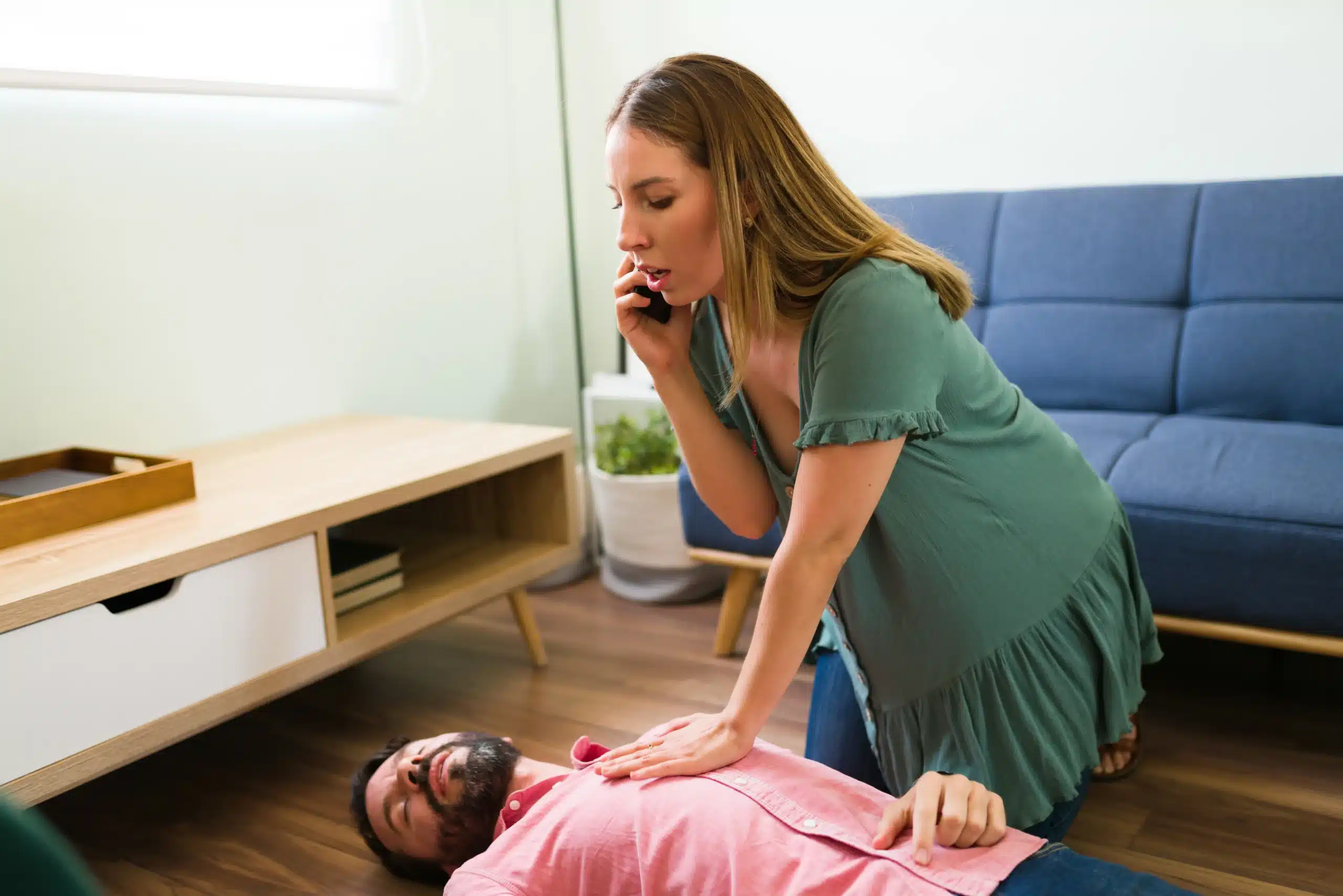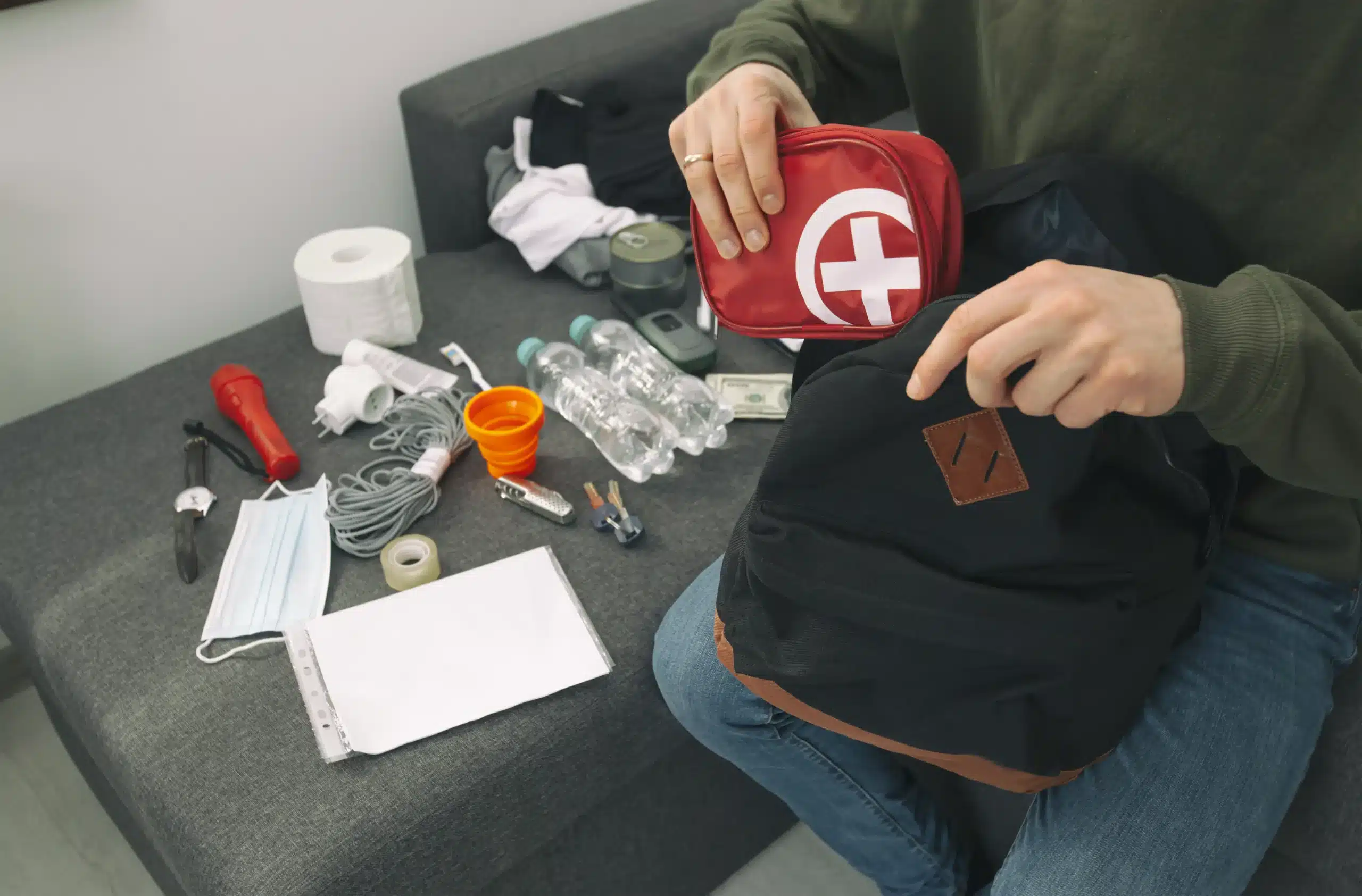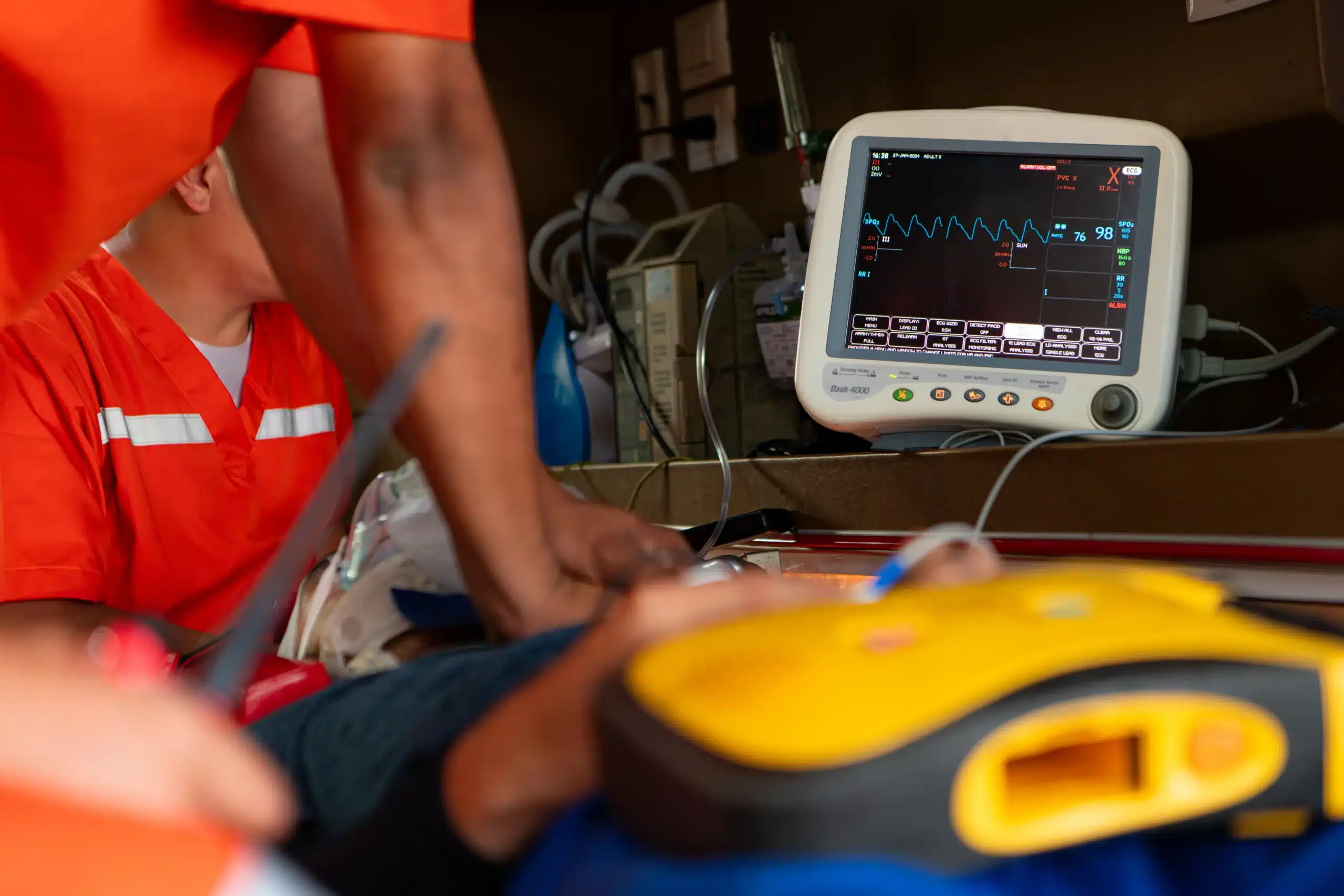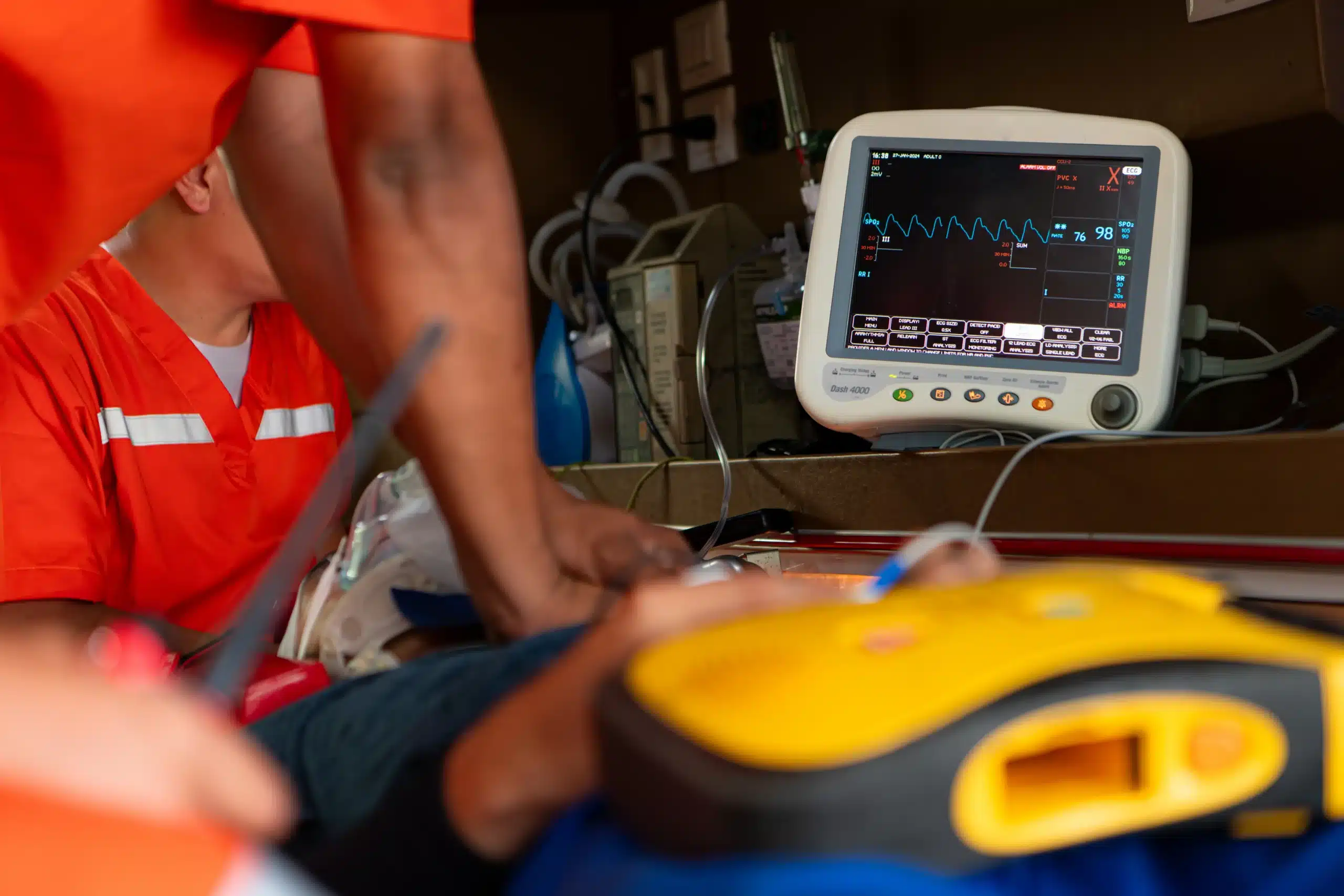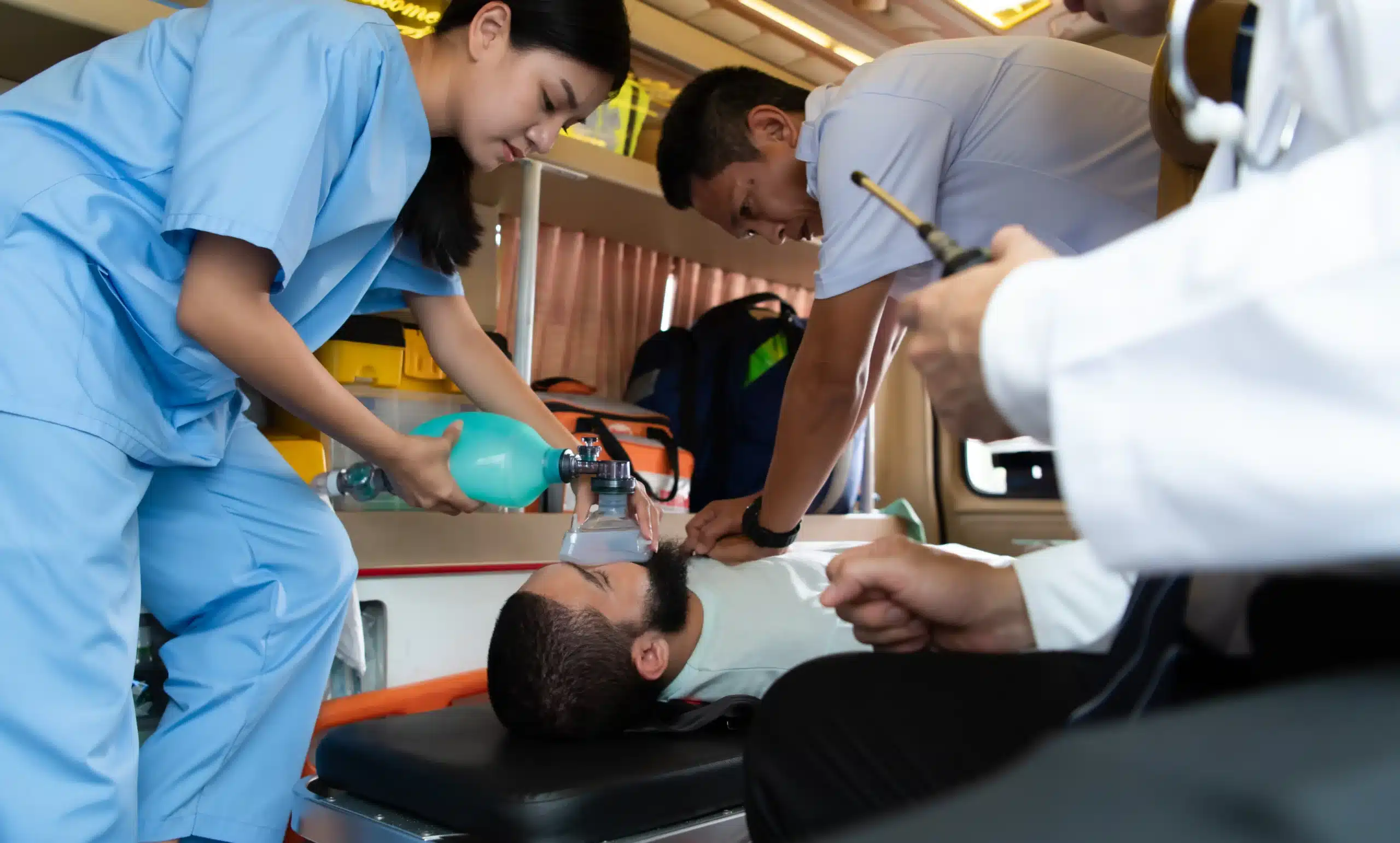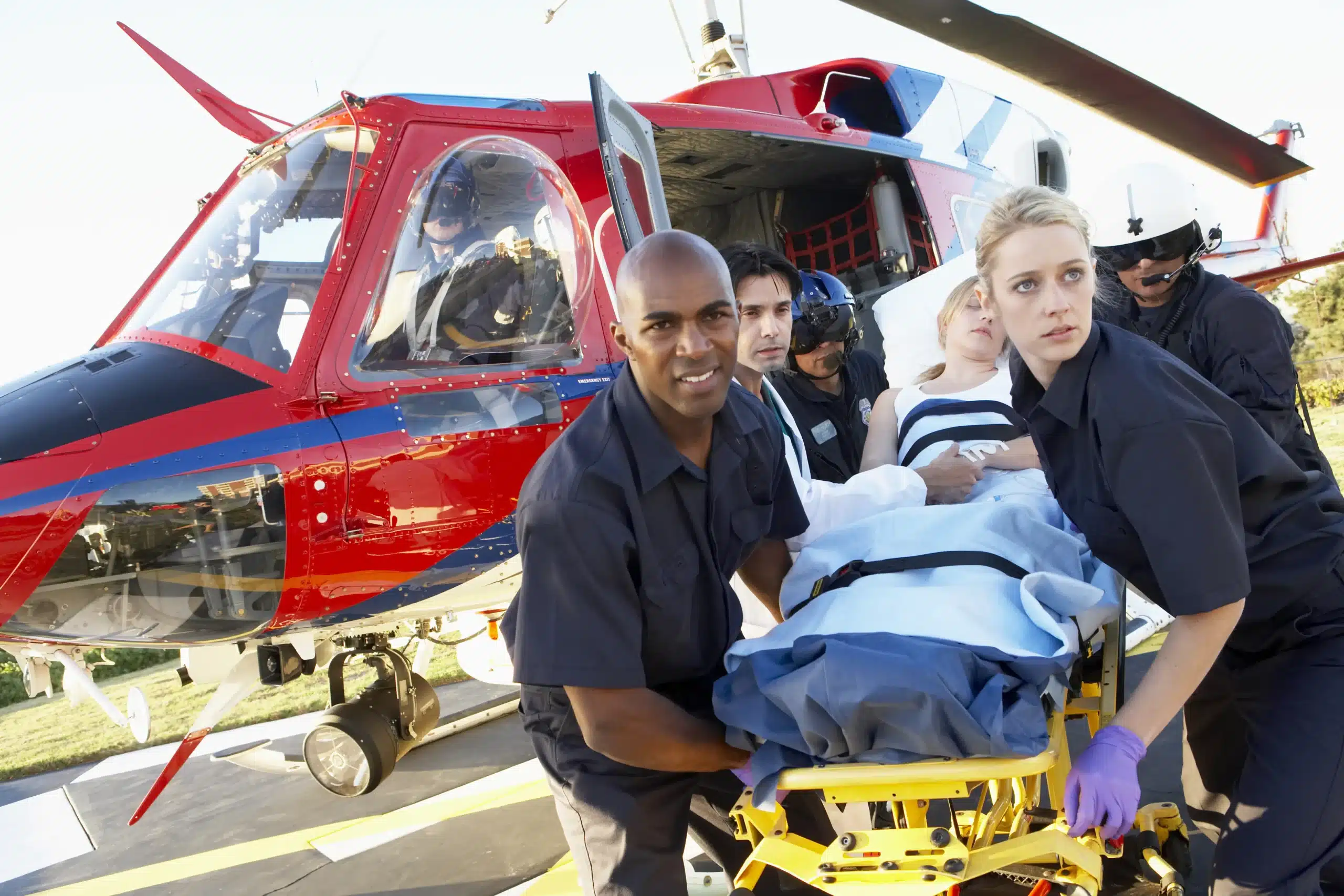Empowering yourself with life-saving skills is one of the most valuable gifts you can give yourself and your community. This guide focuses on American Heart Association training in Rocklin, CA, providing a comprehensive overview of the available courses, including CPR, First Aid, BLS, ACLS, and PALS. We’ll discuss the importance of these certifications, the cost of training, convenient class schedules, and tips for choosing the right training provider. We’ll also touch on the psychological recovery of CPR survivors, acknowledging the emotional impact of these events and offering resources for support. Join us as we explore the world of life-saving techniques and how you can become a vital link in the chain of survival.
Key Takeaways
- AHA certification provides credible, high-quality training: These courses equip you with valuable, up-to-date skills for various emergencies, whether you’re a healthcare provider or simply want to be prepared. Rocklin CPR Classes offers convenient schedules and competitive pricing for these courses.
- CPR training is accessible and empowers everyone to help: It’s easier than you think to learn these lifesaving skills. Many providers offer flexible scheduling, and even without formal certification, CPR training prepares you to respond effectively in emergencies.
- Select a training provider that meets your needs: Consider factors like course variety, flexible schedules, competitive pricing, experienced instructors, and convenient locations. Group discounts and a low price guarantee can add extra value.
What is American Heart Association Training in Rocklin?
The American Heart Association (AHA) offers nationally recognized life-saving courses in Rocklin, CA. These programs range from the fundamentals of CPR and First Aid to advanced techniques like BLS, ACLS, and PALS. These courses are valuable for everyone, not just healthcare professionals. The AHA leads the way in resuscitation science, ensuring their training reflects the latest research and best practices. You can get certified right here in Rocklin with Rocklin CPR Classes, known for their high-quality instruction and convenient schedules. Because the AHA doesn’t set a minimum age for learning CPR, these essential skills are accessible to all.
AHA Courses in Rocklin
Rocklin, California, offers a variety of American Heart Association (AHA) courses to equip you with life-saving skills. Whether you’re a healthcare professional, a childcare provider, or simply someone who wants to be prepared for emergencies, there’s a course for you. Let’s explore some of the key AHA certifications available in Rocklin.
CPR Training
CPR training provides the fundamental skills to respond to cardiac arrest and other breathing emergencies. You’ll learn how to perform chest compressions, rescue breaths, and use an automated external defibrillator (AED). CPR certification is a valuable asset, empowering you to assist family, friends, or even strangers in critical situations. These courses are designed to be accessible to everyone, regardless of prior medical experience.
Basic Life Support (BLS)
BLS certification goes a step further than general CPR training, focusing on the skills healthcare providers and other emergency responders need. The BLS course covers high-quality CPR, team dynamics, and the use of advanced airway devices like bag-valve masks. It often uses a blended learning format, combining online coursework with in-person skills sessions. This approach allows for flexible learning while ensuring competency in practical skills.
Advanced Cardiovascular Life Support (ACLS)
ACLS is designed for healthcare professionals who manage cardiopulmonary arrest and other cardiovascular emergencies. This advanced course builds upon BLS skills, delving into complex algorithms, pharmacology, and team management strategies. You’ll learn how to quickly assess and treat patients experiencing strokes, heart attacks, and other life-threatening conditions. A current BLS for Healthcare Providers card is typically required to enroll.
Pediatric Advanced Life Support (PALS)
PALS focuses on the specialized skills needed to respond to emergencies involving infants and children. This course covers pediatric assessment, resuscitation techniques, and management of respiratory and circulatory problems. Like ACLS, PALS emphasizes teamwork and effective communication in high-pressure situations. It’s an essential certification for pediatricians, nurses, paramedics, and other healthcare professionals who work with young patients.
First Aid Training
While not solely focused on life-threatening conditions, First Aid training is a valuable complement to CPR and other AHA certifications. You’ll learn how to manage injuries, control bleeding, treat burns, and handle other common medical emergencies. First Aid training empowers you to provide immediate care in a variety of situations, promoting safety and well-being in your community.
Why Get AHA Certified?
National Recognition and Quality Assurance
Choosing the right CPR certification matters, especially when lives are on the line. The American Heart Association (AHA) sets the standard for high-quality CPR and emergency cardiovascular care training. Opting for an AHA certification carries significant weight because the AHA is a nationally recognized and respected organization. This recognition ensures your certification will be valid and accepted across the US, providing consistency and reliability no matter where you are. The AHA leads in resuscitation science, setting the guidelines other organizations follow. Earning your certification through them ensures you’re learning the most up-to-date and evidence-based practices for responding to emergencies.
Career Advancement
AHA certifications can open doors to various career opportunities. Many healthcare professions, including nursing, physical therapy, and dental hygiene, require current AHA certifications like BLS, ACLS, and PALS. Even outside of traditional healthcare, an AHA certification demonstrates your commitment to safety and preparedness, a valuable asset to employers. This can give you an advantage in fields like education, childcare, fitness, and lifeguarding. Knowing you can potentially save a life also brings personal empowerment and confidence, allowing you to contribute to your community’s safety. For healthcare professionals, maintaining AHA certifications shows professional development and ensures you stay current with advancements in emergency care.
Cost of AHA Training in Rocklin
Knowing the cost of your American Heart Association (AHA) training is a practical first step. Let’s break down the typical expenses and explore ways to make it more affordable.
Pricing and Inclusions
In Rocklin, AHA training generally costs around $120. This fee usually covers everything you need: comprehensive online learning materials, the in-person skills testing session, and your AHA certification card, which you’ll receive the same day you complete the course. For example, you can find this all-inclusive pricing for BLS certification at Rocklin CPR Classes. With classes running seven days a week, from 7 am to 6 pm, you should be able to find a time that fits your schedule.
Group Discounts
If you’re coordinating training for a group, such as your workplace or a community organization, look into group discounts. Many providers offer reduced rates for group bookings, often held at your location. This can be a smart way to save money and streamline the training process, especially if coordinating travel for multiple people is a concern. CPR training providers in Rocklin are a good starting point for exploring these options. Reach out to providers directly to discuss your group’s specific needs and get the best pricing. You can find contact information for Rocklin CPR Classes on their website.
Class Schedules and Formats
Finding a CPR class that fits your busy schedule shouldn’t be a hurdle. We offer various American Heart Association (AHA)-certified courses—including CPR, BLS, ACLS, PALS, and First Aid—with convenient daily class options in Rocklin, CA.
Daily Class Options
We understand that your time is valuable. That’s why we offer classes seven days a week, from 8 am to 10 pm. This flexibility allows you to choose a time that works best for you, whether it’s early morning, afternoon, or evening. Check our website for our class schedule and find the perfect fit. We serve Rocklin, Roseville, and Sacramento, CA, making it easy to find a location near you.
Blended Learning: Online & In-Person
For those who prefer a combination of online learning and hands-on practice, our blended learning format is a great option. Our BLS CPR Provider HeartCode course, available for both initial certification and renewal, follows this format. You’ll start with a self-paced online portion, which typically takes 1–2 hours. This online component adapts to your current knowledge level, so the duration can vary based on your experience. After you complete the online portion, you’ll schedule a short, in-person skills session (40–60 minutes) at one of our convenient locations. This in-person session allows you to practice the skills you learned online and demonstrate your proficiency to a certified instructor.
Getting AHA Certified
Getting your American Heart Association (AHA) certification is a straightforward process. Here’s what you can expect:
Course Requirements
To take an AHA certification course like ACLS, you’ll typically need a current AHA BLS for Healthcare Providers card. Make sure you bring both sides of your card to class for verification. This prerequisite ensures everyone has a solid foundation in basic life support. If you’re looking to get BLS certified for the first time, the process is simple, requiring registration and attendance for your chosen class. Check with your chosen provider, like Rocklin CPR Classes, for specific requirements. You can easily contact them with any questions.
Exams, Skills, and Validity
AHA courses are nationally recognized, meaning your certification is valid throughout the United States. These courses combine classroom learning with hands-on skills practice. You’ll learn essential techniques and demonstrate your proficiency. After successfully completing the course, you’ll receive a BLS Provider Course Completion card, valid for two years. This certification is vital for healthcare professionals and anyone needing to show they can perform CPR and other lifesaving skills. The American Heart Association provides further information on BLS certification.
Maintaining Your Certification
Your CPR certification is valid for two years. To stay current and keep your skills sharp, sign up for a CPR and First Aid renewal course before it expires. These refresher courses are often shorter than the initial certification and help ensure you’re always prepared to respond in an emergency. Staying up-to-date is key to being confident and ready to help when needed.
Choosing an AHA Training Provider
Finding the right American Heart Association (AHA) training provider is key to a positive and effective learning experience. Several factors contribute to a quality training program, and understanding these can help you make a smart decision.
Provider Selection Factors
Consider these key aspects when selecting your AHA training provider:
- Course Variety: A good provider offers a range of AHA courses, including BLS, ACLS, PALS, CPR, and First Aid. This ensures you can find the right certification.
- Scheduling: Life gets busy. Look for providers with flexible schedules, including weekend and evening classes, to fit your availability. Rocklin CPR Classes offers various class times and locations.
- Pricing: Competitive pricing matters. Compare costs, and ask about group discounts if you’re training with others. A low price guarantee offers additional value.
- Instructor Quality: Experienced, certified instructors are essential. Look for providers who highlight instructor credentials and student feedback. A positive learning environment significantly impacts your understanding.
- Location and Accessibility: Choose a training center that’s convenient and easy to get to. Consider parking, public transportation, and proximity to your home or work.
Top AHA Providers in Rocklin
Here are a few reputable AHA Training Centers in Rocklin, CA:
Rocklin CPR Classes
Rocklin CPR Classes is known for its comprehensive AHA courses, including BLS, ACLS, PALS, CPR, and First Aid. They focus on high-quality instruction and hands-on practice. Explore their courses and schedule on their website. Reach out through their contact page with any questions.
Safety Training Seminars
Safety Training Seminars, a woman-owned business in Rocklin, offers a low-price guarantee on its AHA courses. They provide flexible scheduling with classes available daily. You can find more information about Safety Training Seminars on the Rocklin CPR Classes website.
Bay Area CPR
Bay Area CPR also recommends Safety Training Seminars as a provider in Rocklin. They emphasize the value of AHA certification and the range of courses offered. For additional information on providers in the area, visit the Bay Area CPR website.
Benefits of AHA Training in Rocklin
Choosing the right CPR and first aid certification course can feel overwhelming. Opting for American Heart Association (AHA) training in Rocklin comes with distinct advantages, making it a smart choice. Here’s why:
Comprehensive Courses
AHA training in Rocklin offers a wide range of courses designed to meet diverse needs. Whether you’re looking for basic CPR training or advanced life support certification, there’s a course for you. Rocklin CPR Classes offers everything from basic CPR and First Aid to more specialized certifications like Basic Life Support (BLS), Advanced Cardiovascular Life Support (ACLS), and Pediatric Advanced Life Support (PALS). This comprehensive approach ensures you can find training to match your personal or professional goals. They even offer group discounts for businesses or organizations.
Convenient Schedules
Juggling work, family, and other commitments makes finding time for extra training tough. AHA training in Rocklin understands this and offers flexible scheduling. With classes available daily from 8 am to 10 pm, you can find a time that fits your busy schedule. This accessibility makes it easier to prioritize learning these vital life-saving skills. Contact Rocklin CPR Classes to find a class time that works for you.
Nationally Recognized Certification
Earning your AHA certification means receiving credentials recognized and respected throughout the United States. This national recognition provides assurance that your training meets the highest standards. Whether you need certification for your job or want to be prepared for emergencies, an AHA certification carries weight and demonstrates your commitment to providing high-quality care. This portability is invaluable, especially if you relocate or travel frequently.
Prepare for Your AHA Training
Getting ready for your American Heart Association (AHA) training? A little prep work goes a long way. This section covers everything you need to know before your class, from pre-course materials to helpful tips for acing your training.
Pre-Course Materials and Checklist
Before your AHA training begins, make sure you have everything you need. For online portions of the course, use a computer or tablet. Mobile phones aren’t compatible, so plan accordingly. The online portion is adaptive, meaning it adjusts to your existing knowledge. The time it takes to complete the online training will vary from person to person. If you’re attending an in-person skills session for BLS, bring your current AHA BLS for Healthcare Providers certification card. The instructor will make a copy and return the original to you. Make sure you have both the front and back of the card ready to present.
Tips for Success
Want to feel confident and prepared for your AHA training? Here are a few tips to help you succeed. Watching any available pre-course videos can significantly improve your understanding and increase your chances of passing the skills test. During CPR practice, focus on allowing for full chest recoil. This is crucial for effective compressions. If you’re practicing 2-person CPR, smooth transitions are key. Aim to switch roles within five seconds to minimize interruptions in chest compressions. Finally, pay close attention to the on-screen instructions during the skills test. This will ensure you’re following the correct procedures and performing the skills accurately. With a little preparation, you’ll be well on your way to becoming AHA certified.
AHA Training Myths Debunked
Let’s clear up some common misconceptions about American Heart Association (AHA) training and CPR. These myths can discourage people from learning this lifesaving skill, so let’s set the record straight.
Myth: Only Medical Professionals Need CPR
One of the biggest myths is that only doctors and nurses need to know CPR. The truth is, anyone can and should learn CPR. Emergencies can happen anywhere, and immediate action can significantly improve survival rates. The AHA recommends hands-only CPR for bystanders, making it even easier to help in a crisis. You don’t need extensive medical training to make a difference.
Myth: CPR is Always Mouth-to-Mouth
Many people believe CPR always involves mouth-to-mouth resuscitation. While rescue breaths are sometimes part of the process, hands-only CPR is often sufficient and highly effective. Current guidelines from the AHA prioritize chest compressions, as they’re crucial for circulating blood and oxygen. Learning hands-only CPR can give you the confidence to act quickly in an emergency. Our CPR courses cover these techniques in detail.
Myth: Certification Takes Too Long
Another common misconception is that getting CPR certified requires a huge time commitment. In reality, CPR courses are designed to be efficient and accessible. You can become certified in a matter of hours, not days or weeks. CPR training focuses on practical skills and essential knowledge, empowering you to respond effectively in a real-life situation. Check out our class schedules to see how easily you can fit training into your life. We offer a variety of courses, including BLS, ACLS, and PALS.
Addressing Other Myths
There are other myths surrounding CPR certification, such as needing a certificate to perform CPR. While a formal certification isn’t legally required to help someone in need, it does provide valuable training and validation of your skills. It also demonstrates your commitment to preparedness and can even enhance your resume. Consider exploring our group discounts if you’re interested in training with friends or colleagues. Don’t let these myths hold you back from learning a skill that could save a life. Contact us at Rocklin CPR Classes to learn more.
Related Articles
- CPR Classes in Rocklin, CA – BLS, ACLS, PALS, & First-aid
- BLS CPR Classes in Rocklin, CA – Rocklin CPR Classes
- PALS (Pediatric Advanced Life Support) Course in Rocklin – Rocklin CPR Classes
- ACLS Certification Course in Rocklin, CA – Affordable Daily Classes
- Group CPR Classes in Rocklin, CA – Rocklin CPR Classes
Frequently Asked Questions
What’s the difference between CPR, BLS, ACLS, and PALS?
CPR is the foundation for all levels. BLS builds upon CPR, adding techniques for healthcare providers and first responders. ACLS is advanced training for managing cardiovascular emergencies, while PALS focuses on the specific needs of infants and children. Think of it as a staircase, with each level adding more specialized knowledge.
How much does AHA training cost in Rocklin?
AHA training in Rocklin typically costs around $120, which usually includes study materials, the skills test, and your certification card. Check with specific providers like Rocklin CPR Classes, as they may offer discounts, especially for groups.
How long does it take to get certified?
You can get CPR certified relatively quickly, often in a single day. The time commitment varies depending on the course and format (blended learning versus traditional classroom). Many providers offer flexible schedules to accommodate busy lifestyles.
How often do I need to renew my AHA certification?
AHA certifications, like BLS, ACLS, and PALS, are typically valid for two years. Renewal courses are available to keep your skills current and maintain your certification status. Check with your certifying body or training provider for specific renewal requirements.
What if I’m nervous about the skills test?
It’s normal to feel a little apprehensive about the skills test, but most training providers create a supportive learning environment. Practice beforehand, ask your instructor questions, and focus on the core techniques. The goal is to build confidence and competence in life-saving skills.
This article was written for free by MEGA SEO.
